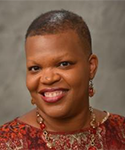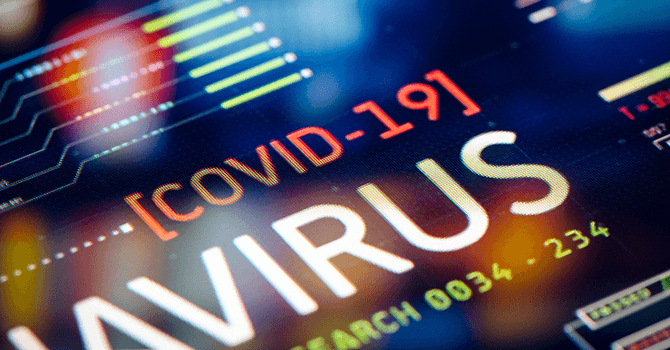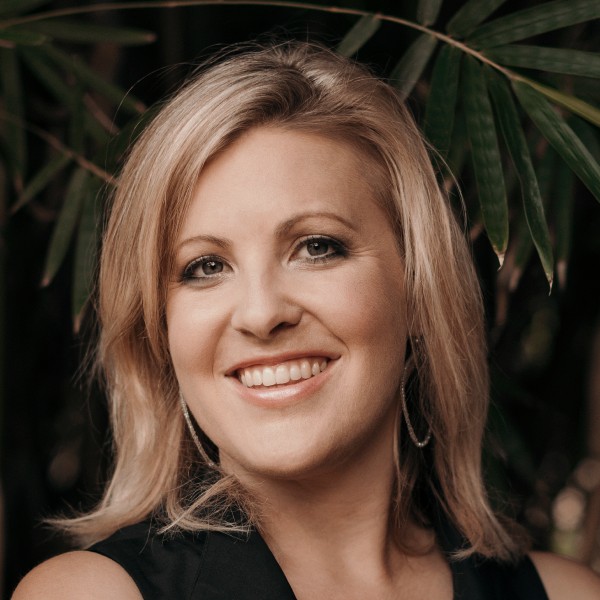Since COVID-19 began to make its presence felt in the U.S. in early March, there has been a lot of talk about fear. Or rather, there has been a lot of talk about avoiding fear.
“We have nothing to fear but fear itself.” Franklin Roosevelt’s words, spoken at his first inauguration in 1933, could be America’s official slogan. Americans often speak of fear as if it were an enemy to be vanquished rather than a normal and perfectly natural emotion.
Many Americans believe that fear is a sign of weakness. We do not want to be afraid, but more importantly, we do not want to look afraid, because people judge our fear.
The COVID-19 pandemic has revealed our cultural fear of fear as so great that we would rather engage in risky behaviors and reject public health precautions than admit to being afraid.
I’ve experienced this in my own interactions with people over the last few months, both personally and as a pastoral care professor and licensed clinical psychologist.
“I refuse to go out and panic like those people,” a phlebotomist in my doctor’s office told me as we discussed the Centers for Disease Control and Prevention’s recommendation that U.S. households stock up with two weeks of supplies in case they should need to self-isolate.
“These people just want you to be afraid of something,” I overhead a woman in a medical center bathroom say when her companion reminded her to wash her hands for 20 seconds.
Prominent Christian leaders have joined in the campaign against COVID-19 fear. In May, for example, R.R. Reno, the editor of First Things magazine, wrote a series of Twitter posts about a White House visit of WWII veterans in which he railed against the “hysteria” of wearing masks in public.
“By the way,” he wrote, “the WWII vets did not wear masks. They’re men, not cowards. Masks=enforced cowardice.”
And then later: “Look, let’s face it. There are those who are terrified, and those who are not. Where do you stand? Terror or a more reasonable position? Will you visit our mother? If so, the mask is a PC gesture. If not, you are a moral monster.”
Reno later deactivated his account and issued an apology, and his comments were heavily criticized by other Christian writers. Yet the views he expressed were consistent with many pastors and religious leaders who saw the suspension of in-person worship as caving in to fear.
As Reno suggested, in the church, fear has moral, perhaps even salvific, implications. Many Christians view fear as the antithesis of faith and truth; it indicates a lack of trust in God, which is tantamount to sin and thus something to be avoided at all costs.
Christian reactions to the COVID-19 pandemic -- including whether we continue attending church services in person, wear masks and practice physical distancing -- have consequently been framed as litmus tests of our trust in God’s protection and guidance.
I experienced this at the last in-person worship service that I attended in March, just a few days after the first virus cases appeared in my state. A few minutes into the service, the worship leader said, “God ain’t letting coronavirus take me out!”
Then the pastor preached a sermon entitled “God Is in Control,” in which he strung together a series of cliches about faith and fear. He promised that everything would be OK if we just had faith, as if Christian faith were a Patronus charm.
Faith does not prevent infection; neither does it inoculate us against fear. Throughout the pandemic, I have heard pastors blithely quote 2 Timothy 1:7, “God has not given us a spirit of fear.”
Maybe not a spirit of fear. That would be what mental health professionals consider trait anxiety, a persistent feeling of fear and dread that is not specific to the situation but is rather all-encompassing.
A spirit of fear, however, is not the same as fear itself. And God has given us fear.
The emotional experience that we label “fear” is, in fact, a remarkably complex physiological process designed to alert us to the presence of danger and enable us to respond to it.
It’s what many of us grew up learning to call fight-or-flight. Nowadays, it’s known by other names: fight-flight-freeze, acute stress response, hyperarousal and so on.
No matter the name, it is a biological process controlled by our autonomic nervous system. We were born with it. That is to say, God created us with it.
When our senses perceive a threat, our brain’s limbic system triggers a cascade of approximately 1,500 biochemical responses that include diverting blood and oxygen away from nonessential (at that moment) organs and toward our brain, heart, liver and muscles to help us resist or escape the threat; dilating our pupils to help us see it more clearly; decreasing our sense of pain; and even producing more blood-clotting platelets to help us deal more effectively with any injuries.
In other words, the fear that triggers the limbic system makes us stronger, faster, more alert and more focused. Our ancestors would not have survived without it. This kind of fear is a gift from God that enables our survival.
Today, our limbic system is less likely to be triggered by wild animals and more likely to be triggered by interpersonal, financial and other stressors -- stressors such as a virus that has claimed the lives of more than 600,000 people in less than seven months.
COVID-19 poses a threat that people in most countries have not faced in over 100 years. It poses an existential threat to many who are infected with it, especially the millions of Americans who are at increased risk because of preexisting conditions, poverty, lack of medical coverage and historical racism.
The fact that it is transmitted via mere proximity to other people has forced us to gauge every interaction -- chatting with neighbors, shopping for groceries, going to the doctor -- as potentially dangerous.
This is not a run-of-the-mill stressor. It is a once-in-a-century, world-changing crisis that threatens the health and lives of individuals as well as the functioning of institutions and government.
Fear, in that circumstance, is not pathological. It is normal; it is adaptive; it is what will enable our survival. It is something, not to be avoided, but rather to be managed.
A healthy dose of fear prompts us to take precautions that we otherwise would not, including wearing masks. A healthy dose of fear respects and adapts to a dangerous reality.
Unhealthy fear, in contrast, is that which consumes us even when we have taken the appropriate precautions. It is fear that morphs into anxiety.
Unhealthy fear is also that which is afraid of fear itself, especially to the point that we might refuse to recognize and adapt to a clear and present danger or might feel the need to belittle and attack those who do.
It is not those who wear masks, I would argue, who exhibit unhealthy fear; it is those who lash out against them.
Fear in the face of a pandemic doesn’t indicate cowardice or lack of faith. It is a normal -- God-given -- response to an abnormal situation.




















